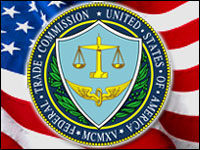
The Federal Trade Commission announced Wednesday that it wasconsidering new rules to protect children’s privacy online. Regulatorscalled for tougher privacy protections to make it harder foradvertisers and social networks to collect information about childrenwithout permission from the parents.
The newly proposed rules would require third-party partners of onlinesites, including those that offer plug-ins to ad networks, to askpermission from a parent or guardian to collect information aboutusers under 13 years of age.
This tough talk sounds good, but how can the FTC ensure it actuallycan be accomplished?
“At this point, they probably don’t know — and more importantly, theydon’t have the technical chops to do so,” said Billy Pidgeon,principal analyst for M2 Research. “This is really something that even technologists have had a hard time trying to crack. The FTC can writeregulations, but they can’t enforce it.”
The FTC did not respond to our request for further details.
Update of COPPA
At its essence, this new call for rules and regulations builds on theChildren’s Online Privacy Protection Act of 1998. The FTC failed to foresee the evolution of online social networks and the way personalinformation is now routinely collected, it noted.
The revision of the childprivacy laws is thus aimed to catch up with advancing technology, andto ensure that websites and advertisers limit the tracking ofchildren.
The question again arises as to how this is actually supposed to beaccomplished, especially given the fact that on the one hand, it isvery common to be tracked online — sites you’ve visited and purchases you’vemade, for example — even while concealing some facts about yourself,namely, your actual age.
“There is a certain level of anonymity that exists online, andpart of this anonymity is that it is very hard to determine if someoneis lying about age,” said Alan Webber, principal analyst at theAltimeter Group. “How you can verify whether someone is a child? There is no way of accurately verifying the age.”
So why is the FTC pushing this now? One answer is that the FTC islooking to be proactive, and basically putting companies and websiteoperators on notice. This is basically throwing it back to thewebsites, especially as more online users are discovering how muchthey are being tracked.
“The thing is, they are talking about kids and privacy, but this reallyshould be about online privacy,” Pidgeon told TechNewsWorld.
“Most people don’t understand privacy. Most people don’t understand how muchof their data and usage is tracked where they go,” he said. “People outside the tech industry don’t know, and they are shocked when they find out.”
Whose Responsibility?
Is privacy something that can be regulated, or is this really aneffect to offer the appearance of protection, especially for children?
“Any proposal to increase kids’ awareness of data use and privacy-related issues is beneficial,” said Josh Crandall, principal analyst at Netpop Research.
“Certifying parental consent still has implementation issues, but requiring this step creates an extra hurdle to sign up for a service and increases awareness about the potentialimplications,” he said. “The earlier the kids recognize the potentialconsequences of their actions online, the better. Digital footprintsdon’t fade away when the wind blows.”
Additionally, consumer privacy advocates have been pushing forstronger rules than even what the FTC has drafted, and have called foradvertisers to avoid behavioral advertising on children. With sitesgeared toward kids, this might be reasonable to enforce — but whatabout the broader issue of keeping kids away from other sites?Moreover, can and will websites be punished if children still manageto enter sites they’re not supposed to?
“It comes down to saying ‘have you made the best effort’ to put inbarriers to a site that isn’t safe for children,” said Webber. “Thecompanies need to say ‘we did the best we could,’ and that might beenough.”
Just as with the debate over TV and movies, the best option mightnot be policing of sites but better communication between children andparents.
“Some parents are going to keep kids off the Internet, which is themost extreme way to ensure privacy,” said Pidgeon, who is also thefather of two young boys. “But really, this is just another talk theparents have to have with their kids to keep them safe.”



















































